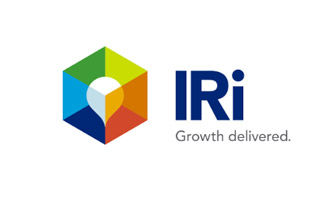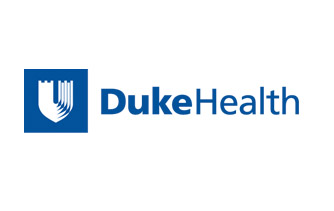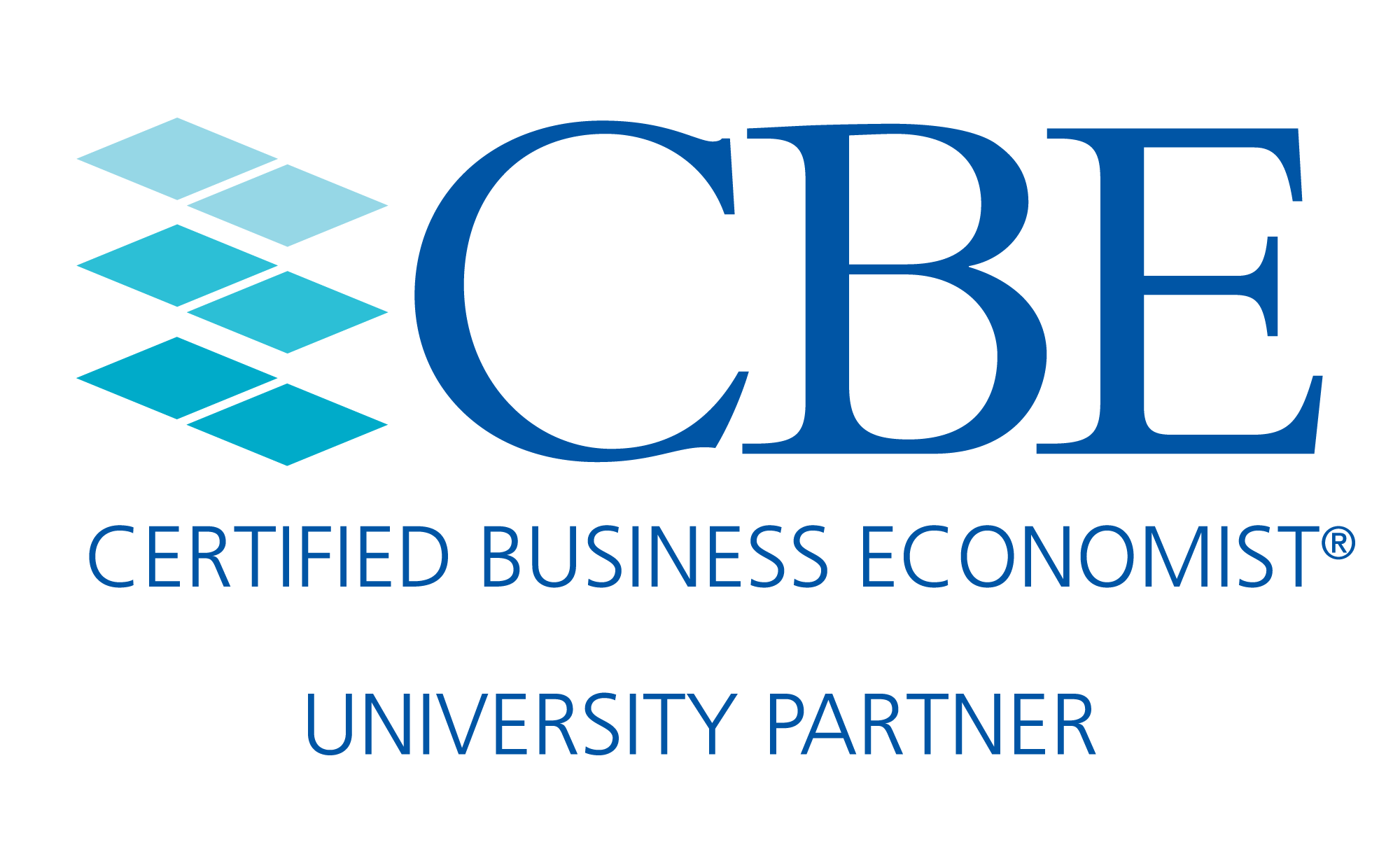Business Forecast Luncheon Highlights Economic Outlook for 2026
Local business leaders, policymakers, and community members gathered to find out: what economic trends are likely to shape the economy in 2026?
02/12/2026
The digital revolution ignited an explosion of data. The availability of data is no
longer a constraint to answering important questions.
The critical constraint is now the ability to analyze, digest, visualize, and ultimately
harness the data to drive decision making in business, science, and society.

The Master of Science in Economic Analytics is an intensive 10-month program that will guide students through economic modeling and theory to computational practice and cutting-edge tools, providing a thorough training in descriptive, predictive and prescriptive analytics.

Job prospects for graduates?
What can I expect?

What coursework is required for this degree?

How Much? How Long?
Who can enroll?
Admission to Walton College masters programs is selective. Enrollment in each program is limited.
Wondering who you’ll meet in class? Get to know our current students.
How has an economic analytics degree helped you?
One Year
This two-semester program begins in August and ends in May. (one academic year)
Fall
New cohorts begin each Fall Semester for this degree program.
Do I Qualify to Enroll?
Complete your undergraduate degree and meet additional requirements. View Requirements
GMAT or GRE
Students may be eligible for a GMAT/GRE test waiver with a 3.2 undergraduate GPA or 3 years of professional work experience. Please review our full master's admissions policies.
International applicants: February 15
Priority (domestic applicants): April 15
Final (domestic applicants): July 1
$21,512.70*
*In-state tuition and fees. Additional tuition costs applied for out-of-state and
international students.
View cost details
Current Students
View a listing of current Master of Science in Economic Analytics Students.
The 4+1 Master of Economic Analytics program option will allow well-prepared undergraduate students to begin graduate courses during the last year of their undergraduate studies.
WHO: Walton students with a 3.2 undergraduate GPA.
WHAT: Early consideration for a graduate program and possible dual credit between an undergraduate and graduate degree.
WHEN: Apply by February 15 in Spring of your second-to-last undergraduate year.
WHY: Save time and potentially money!
Students interested in the 4+1 Master of Economic Analytics program will require additional guidance and advising.
A survey of prospective employers indicates a robust and growing market for individuals successfully completing the MS in Economic Analytics program across many industries, such as retail, banking, finance, and healthcare. Common job titles associated with the knowledge and skills obtained from the program are:
Expected salary for these positions is in the $75-85K range, rising sharply with experience. According to the Bureau of Labor Statistics, median pay in 2023 for master’s level economists is $115,730 per year. Salaries vary based on location, experience and education.
National median pay for economists in 2023. The lowest 10 percent earned less than $62,520, and the highest 10 percent earned more than $216,900.1
Number of people employed as economists in the United States in 2023.1
Projected numeric change in the number of employed economists from 2023 to 2033. (5% change.)1
A typical requirement for entry-level employment as an economist.1
The average gross salary, including sign-up bonuses, for our 2021-2023 Master of Science in Economic Analytics graduates is $80.4k for post-graduate placement.
1Source: Bureau of Labor Statistics, U.S. Department of Labor (2023)
Executives and managers from the multiple organizations wrote letters of support for offering the Master of Science in Economic Analytics degree.
 "There are large technological advances being made in the data analytics and predictive
space. Over time, the tools that are being developed will filter down to jobs in schools,
industries and government. This is a field that is not going away. Those areas that
have invested in the ability to incorporate and adopt the tools will thrive. This
program is taking one step in the right direction.
"There are large technological advances being made in the data analytics and predictive
space. Over time, the tools that are being developed will filter down to jobs in schools,
industries and government. This is a field that is not going away. Those areas that
have invested in the ability to incorporate and adopt the tools will thrive. This
program is taking one step in the right direction.
 "I believe this is a very nice addition to a standard Economics Degree program, infusing
the incredibly valuable core reasoning and thinking skills from a traditional program
with advanced data manipulation, analysis and interpretation skills. Graduates of
Econ programs are among the best problem solvers we have. Adding more direct data
science skills will only make them more effective in the workforce.""
"I believe this is a very nice addition to a standard Economics Degree program, infusing
the incredibly valuable core reasoning and thinking skills from a traditional program
with advanced data manipulation, analysis and interpretation skills. Graduates of
Econ programs are among the best problem solvers we have. Adding more direct data
science skills will only make them more effective in the workforce.""
 "Hospitals collect massive amounts of information and effective utilization of this
information is necessary to remain competitive and financially solvent. The proposed
coursework in SQL programming, Business Intelligence, and Python scripting combined
with graduate economic coursework is a great foundation for understanding healthcare
processes, asking great questions, and most importantly—successfully solving problems."
"Hospitals collect massive amounts of information and effective utilization of this
information is necessary to remain competitive and financially solvent. The proposed
coursework in SQL programming, Business Intelligence, and Python scripting combined
with graduate economic coursework is a great foundation for understanding healthcare
processes, asking great questions, and most importantly—successfully solving problems."
To obtain the Master of Science in Economic Analytics degree, students must complete the following 30 hours of coursework.
The Master of Science in Economic Analytics is an intensive 10-month program that will guide students through economic modeling and theory to computational practice and cutting-edge tools, providing a thorough training in descriptive, predictive and prescriptive analytics.
Students will be equipped with a solid knowledge of econometric and machine learning methods, optimization and computing. These big-data skills, combined with knowledge of economic modeling, will enable them to identify, assess and seize the opportunity for data-driven value creation in the private and public sectors.
 |
| Program Director: Jingping Gu Associate Professor jgu@uark.edu |

Have questions? Walton faculty and staff answer common questions to make the application process more transparent and easier to understand.
Local business leaders, policymakers, and community members gathered to find out: what economic trends are likely to shape the economy in 2026?
02/12/2026
The Department of Economics at the Sam M. Walton College of Business will host the 2025 Economic Analytics Poster Session from 12:30-2:30 p.m. on Friday, April 25, in Willard J. Walker Hall 203 (Hembree).
04/17/2025 | By Meghan Perry

Join a supportive and engaging community located in the vibrant business network of Northwest Arkansas, with over 300 Fortune 500 companies with a presence in the region.
Business leaders and Walton alumni are closely connected to the college, not just during your studies, but throughout your career.